Uncategorized
-
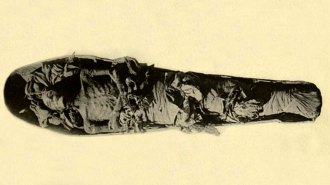 Anthropology
Anthropology50 years ago, X-rays revealed what ancient Egyptians kept under wraps
In the 1970s, scientists used X-rays to unravel mummy secrets. Now, advances in technology are providing unprecedented views of ancient Egyptians.
By Bruce Bower -
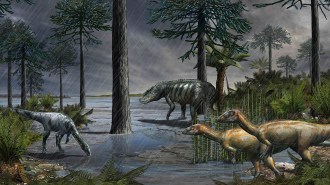 Earth
EarthA volcano-induced rainy period made Earth’s climate dinosaur-friendly
New physical evidence links eruptions 234 million to 232 million years ago to climate changes that let dinosaurs start their climb to dominance.
By Megan Sever -
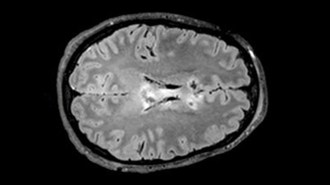 Neuroscience
NeuroscienceA blood test may help predict recovery from traumatic brain injury
High levels of a key blood protein point to brain shrinkage and damage to message-sending axons, providing a biomarker for TBI severity and prognosis.
-
 Science & Society
Science & SocietyThe spoken word album ‘Experimental Words’ weaves rhyme with reason
The spoken word album Experimental Words, a collaboration between researchers and poets, explores the intersection between science and art.
By Aina Abell -
 Genetics
GeneticsAll identical twins may share a common set of chemical markers on their DNA
Identical twins may share a set of unique chemical tags on their DNA that could be used to identify individuals who were conceived as identical twins.
-
 Materials Science
Materials ScienceThese colorful butterflies were created using transparent ink
See-through printer ink can create a whole spectrum of colors when printed in precise, microscale patterns.
-
 Health & Medicine
Health & Medicine50 years ago, scientists found a link between aspirin use and pregnancy complications
Scientists are still learning about the risks and benefits of taking aspirin at each stage of pregnancy.
-
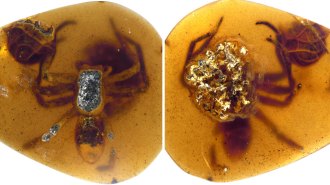 Paleontology
PaleontologyThis is the oldest fossil evidence of spider moms taking care of their young
A spider trapped in amber 99 million years ago guarded her eggs and may have helped raise her young.
By Freda Kreier -
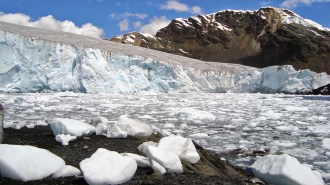 Climate
Climate‘Ice Rivers’ invites you to get to know our world’s melting glaciers
In her new book, Jemma Wadham brings readers along on her scientific expeditions to the world’s iciest places.
-
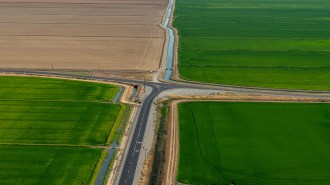 Climate
ClimateRice feeds half the world. Climate change’s droughts and floods put it at risk
Rice provides sustenance for billions who have no alternative, and climate change threatens to slash production. Growers will need to innovate to provide an important crop as climate whiplash brings drought and floods to fields worldwide.
By Nikk Ogasa -
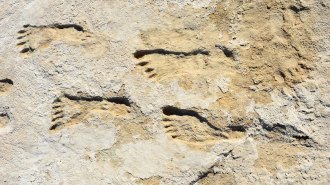 Anthropology
Anthropology‘Ghost tracks’ suggest people came to the Americas earlier than once thought
Prehistoric people’s footprints show that humans were in North America during the height of the last ice age, researchers say.
By Freda Kreier -
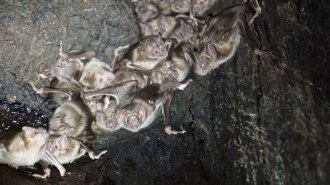 Animals
AnimalsBloodthirsty vampire bats like to drink with friends over strangers
Cooperation among vampire bats extends beyond the roost. New research suggests that bonded bats often drink blood from animals together.